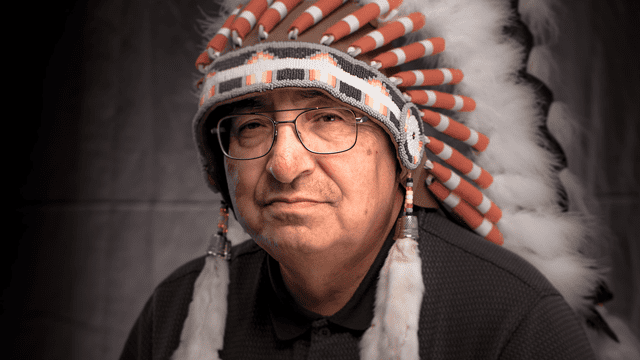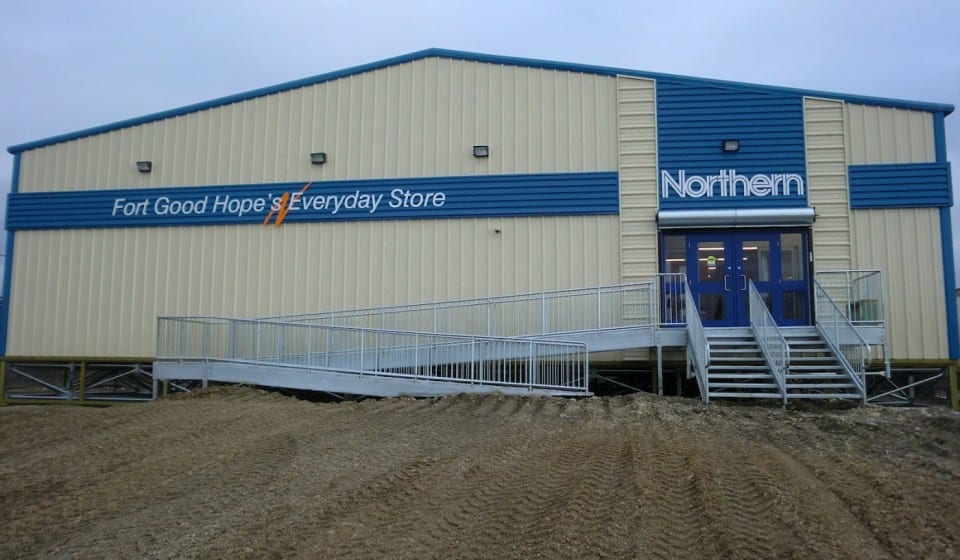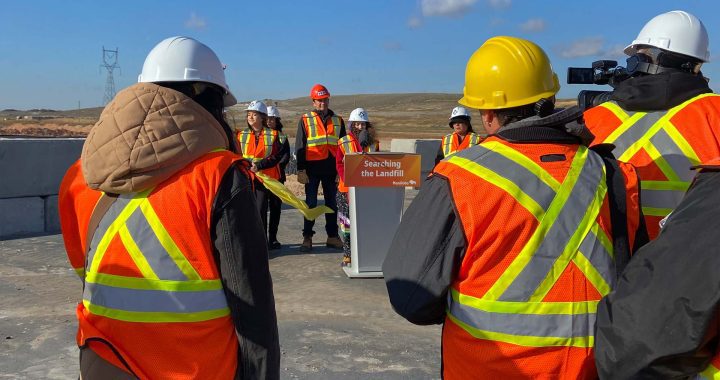
Nine people are isolated in a northern Saskatchewan First Nation after having direct contact with a person infected with the novel coronavirus, says the chief of Peter Ballentyne Cree Nation.
Chief Peter Beatty says the patient came to work in Southend, one of his eight communities, after travelling abroad. She was tested and the results came back confirming she had the infectious disease.
“We’ve informed the members in Southend about the proper protocol to undertake in order not to acquire picking up any flu, especially this one,” Beatty says.
“And so all of the protocols have been communicated to every household.”
The Saskatchewan government identified the patient as a nurse in her thirties who tested positive on March 11 in Southend, 600 kilometres northeast of Saskatoon. She works at the Southend clinic.
2nd presumptive case
Dr Nnamdi Ndubuka, medical health officer for the Northern Inter-Tribal Health Authority, says he is awaiting results of testing on a second presumptive case.
He said the second patient is someone in their fifties who had close contact with the first individual.
“The contact investigation has been completed and the individuals have been notified; some are self-isolating and some have been tested.”
Health officials and politicians are particularly concerned about COVID-19 hitting northern and isolated communities.
As of Friday afternoon, there were 20 cases in Saskatchewan – eight confirmed and 12 presumptive. A testing centre was also opened in Prince Albert.
The Saskatchewan Federation of Sovereign Indigenous Nations (FSIN) also sounded the alarm this week.
“Many of our First Nations are not prepared for this COVID-19 pandemic as it continues to escalate in our region,” Chief Bobby Cameron notes in a statement.
That’s because some of the 74 First Nations he represents don’t have access to health services or supplies needed to help combat the virus.
“The little resources we have in some of our communities has been stretched beyond capacity and these bands still have not seen any funds or supplies come to the nation,” he says.
Meanwhile, the Manitoba Metis Federation (MMF) announced Friday $1 million in financial support for Metis elders, employees and employers who have been impacted by the pandemic.
Part of the money will assist workers who are not getting support from their employers as well as business owners that have to change the way they operate.
In a press release, MMF Minister of Health of Wellness Frances Chartrand says “…We are pleased we are able to make this unprecedented emergency response to help our people get through this difficult time.”
The MMF says it has also purchased three mobile health isolation units that can be used anywhere in the province. And Metis N4 Construction has made available two fully accessible health facilities with 48 beds each which may be available on an as-needed basis for use outside the Metis government, it added.
In a press conference Friday morning President David Chartrand said communities will receive money immediately.
$25,000 cash
“Every region is going to get $25,000 cash immediately to make sure we have the resources and to hire people if necessary to go and deliver groceries to our seniors to keep them isolated in their homes.
“We do not want our elders going to town to shop, we don’t want our elders leaving their house we want them staying home, they’re the most vulnerable and we need to understand that, and we need to make sure we protect our elders.”
Over 1,000 elders have already been contacted to ensure they have rides for appointments, medication and food, the MMF said, noting this investment is on top of free prescriptions and free eyeglasses already offered by the MMF to elders.

The Northwest Company, which has some of the remotest grocery stores and highest prices in Canada, is freezing prices for 60 days because of the COVID-19 epidemic.
Alex Yeo, president of Canadian retail for the Winnipeg-based company, says the move should provide shoppers some relief during this stressful time.
He says prices won’t increase as long as cargo rates and suppliers hold the line.
The chain is also offering a delivery service for elders.
Canada saw the number of COVID-19 cases grow throughout the week, prompting provinces, territories and Indigenous communities to call states of emergency.
The country finished the week with 900 cases reported Friday morning, amid 210,000 globally.
Manitoba was the last province to declare a state of emergency.
“We must continue to use every tool we have in our possible availability to flatten the curve here and do our part to protect all Manitobans,” Manitoba Premier Brian Pallister said Friday.
“The measures that we’re taking today will enshrine quite frankly what has already been happening in Manitoba.”
Their territories
Indigenous nations did the same, saying the declaration allowed them to close public facilities and control who comes in and out of their territories.
“We just don’t know how bad it is,” says Jerry Daniels, grand chief of Manitoba’s Southern Chiefs Organization.
“If we look at what we’re seeing around the world, especially in Italy, we see a G-7 country that wasn’t prepared and we do not want to see the same thing in Canada.”
Daniels repeated the call for medical supplies in First Nations, whose members have been identified as particularly vulnerable to infection.
The federal government responded by announcing a $305-million aid package for Indigenous communities as part of a nationwide $82-billion emergency fund.
Prime Minister Justin Trudeau says there are no strings attached.
“We are going to be sending money to Indigenous communities for them to use they way they need to, to keep their communities safe through COVID-19, and support access to supplies they need and get through this difficult situation.”
Also in Manitoba, Opaskwayak Cree Nation declared a state of emergency Wednesday.
Onekanew or Chief Christian Sinclair says the decision was made because of high rates of diabetes, co-morbidities (the presence of two or more diseases in a patient), Elders and disabilities care home, and overcrowded living conditions – all factors that could be detrimental to the spreading of COVID-19.
“We don’t want to fear monger but this is the reality concerning the social determinants of health in our community here in Opaskwayak as well as other First Nations across Canada,” Sinclair said from northern Manitoba.
The community has scaled down its workforce and leaders are hosting meetings by conference calls or video chat.
Sinclair said this won’t effect employees’ incomes as they will get paid whether they work or not.
“Ultimately, the objective is to ensure that there isn’t a state of panic in our community,” he says.
Respiratory assessment
Also taking action is the territorial government of Yukon, which is opening a respiratory assessment centre in the Yukon Convention Centre in Whitehorse next week.
There medical professionals will treat patients showing signs of acute respiratory illnesses such as influenza or COVID-19.
“Those that are using the online assessment tool or by phone triage are recommended to get testing,” says Dr. Brendan Hanley, chief medical officer of health.
“The second category is those with influenza illness who are at risk for complications.”
Yukon also plans to publish the number of test results on the Yukon.ca website on a week by week basis.
All scheduled non-urgent surgeries will be suspended.
The northern territory is also preparing a new 811 telephone information option.
However, child care facilities are allowed to remain open.
There are still no confirmed cases of COVID-19 in the territory.









